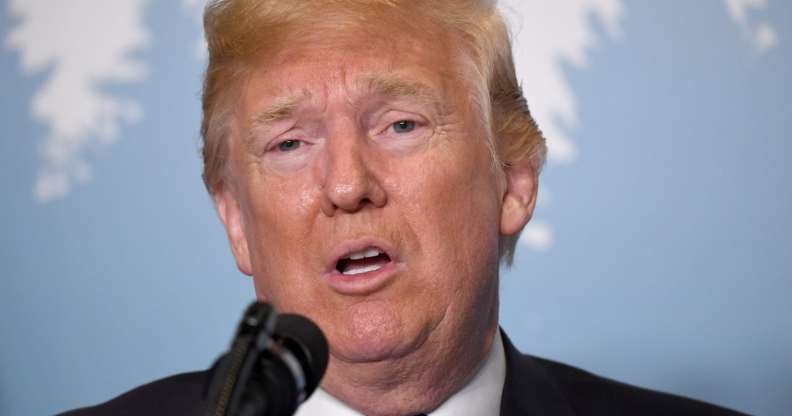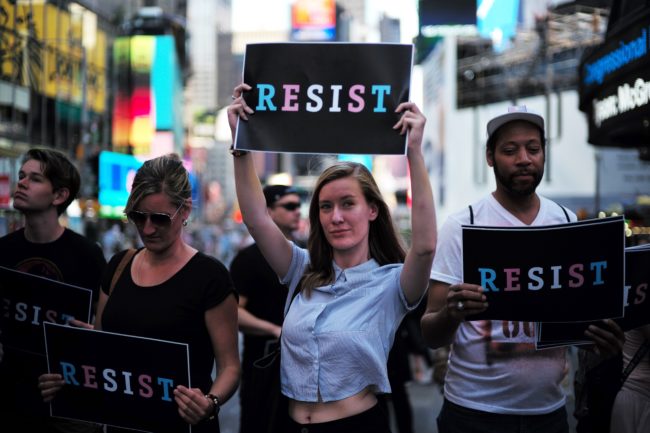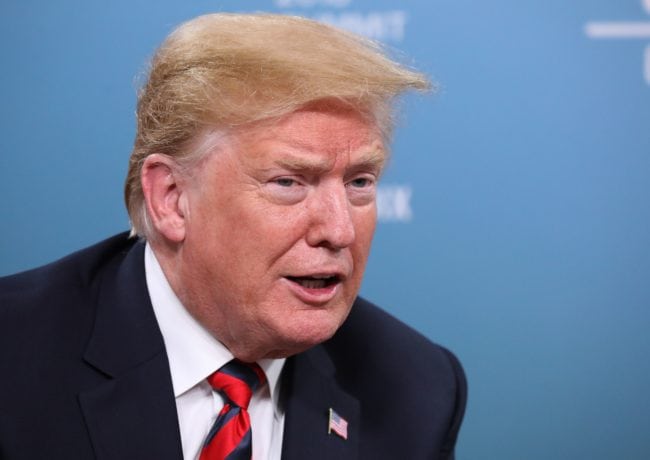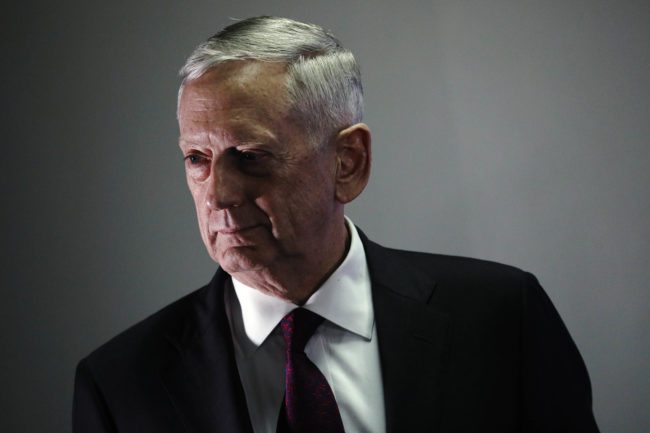Federal judge stops Donald Trump’s transgender troops ban

The Trump administration is responsible for separating 2,300 children from their families (SAUL LOEB/AFP/Getty)
A federal judge has blocked President Donald Trump from passing a ban on transgender people from serving in the military.
US District Judge Marsha Pechman compared the policy to the historical exclusion of blacks from the military and the ban on mixed units when she rejected a revised ban in April.
And the Seattle judge has once again stood in Trump’s way, handing down a ruling on June 15 which rejected the administration’s request to stop most trans people from serving while it appeals her order from April, which created an injunction on instituting the ban.

It’s been 11 months since Trump announced his trans ban (Leon Neal/Getty)
In her latest ruling, she wrote: “The status quo shall remain ‘steady as she goes,’ and the preliminary injunction shall remain in full force and effect nationwide.”
Pechman added that “because transgender people have long been subjected to systemic oppression and forced to live in silence, they are a protected class.
“Therefore, any attempt to exclude them from military service will be looked at with the highest level of care.”
The judge also said the government needed to demonstrate that the proposed ban “was sincerely motivated by compelling interests, rather than by prejudice or stereotype, and that it is narrowly tailored to achieve those interests.”

Opposition to the ban has been fierce and vocal (JEWEL SAMAD/AFP/Getty)
Trans troops and activists welcomed the decision, with Lambda Legal senior attorney Peter Renn saying: “Yet again, the Trump Administration has tried to implement and expedite discrimination, and yet again, the court has said no.
“You would think the administration would get tired of all the losing, and more importantly, would read the writing on the wall and abandon this discriminatory and harmful scheme to prevent brave and qualified transgender people from serving their country.”
Trump started his efforts to stop trans people from serving last year, when he tweeted that “the United States Government will not accept or allow transgender individuals to serve in any capacity in the U.S. Military.”

The judge said Trump’s administration needed to prove its ban wasn’t motivated by “prejudice or stereotype” (LUDOVIC MARIN/AFP/Getty)
In the 11 months since the President’s inflammatory series of tweets made thousands of troops fear that their livelihoods were in danger, his trans ban has been held up by legal challenges and judges’ rulings, and has been roundly condemned by human rights groups, as well as a series of politicians and military figures.
In April, nearly half of all US Senators signed a letter lashing out at the ban and equating it to the ‘Don’t Ask Don’t Tell’ policy which banned openly gay troops.
Pechman’s ruling in April was in response to the Trump administration’s move to pass an altered version of the ban earlier this year, when the President announced that “transgender persons with a history or diagnosis of gender dysphoria… are disqualified from military service except under certain limited circumstances.”
The statement from the White House agreed with the ideas outlined in a memo by Defence Secretary James Mattis, who said there were “substantial risks” associated with trans servicepeople.

Defense Secretary James Mattis (Jonathan Ernst-Pool/Getty)
The Defence Secretary said that permitting some of them to serve would mean exempting them from a series of mental, physical and sex-based standards.
He added that it “could undermine readiness, disrupt unit cohesion, and impose an unreasonable burden on the military that is not conducive to military effectiveness and lethality.”
In a similar vein, lawyers representing the government told Pechman that stopping a ban on trans people means the military has “to adhere to a policy it has concluded poses substantial risks,” but the federal judge rejected this argument.
She pointed out that General Mark Milley, the Army’s chief of staff, had informed the Senate Armed Services Committee that he’d received “precisely zero” reports of any issues with trans servicepeople.

